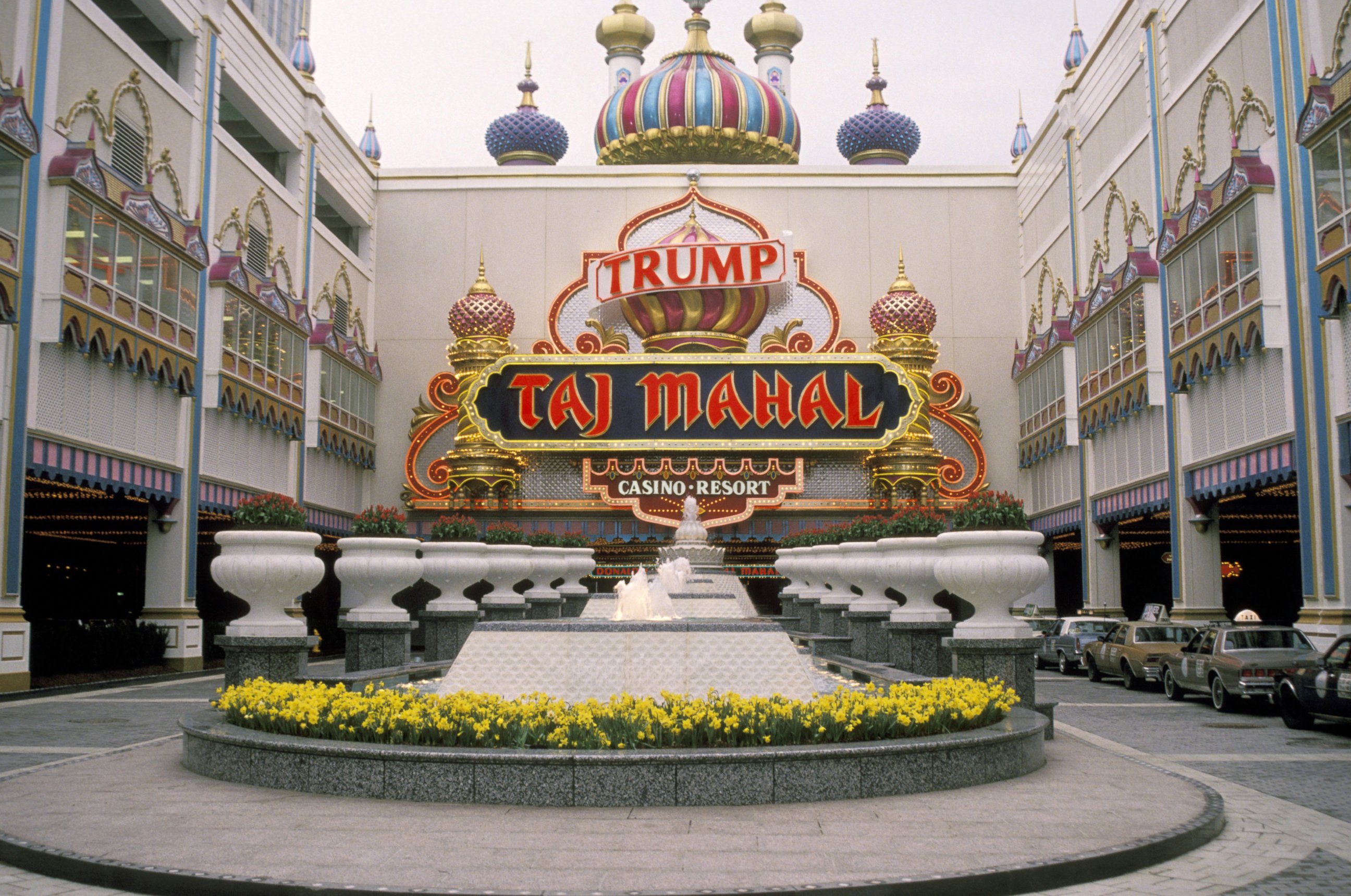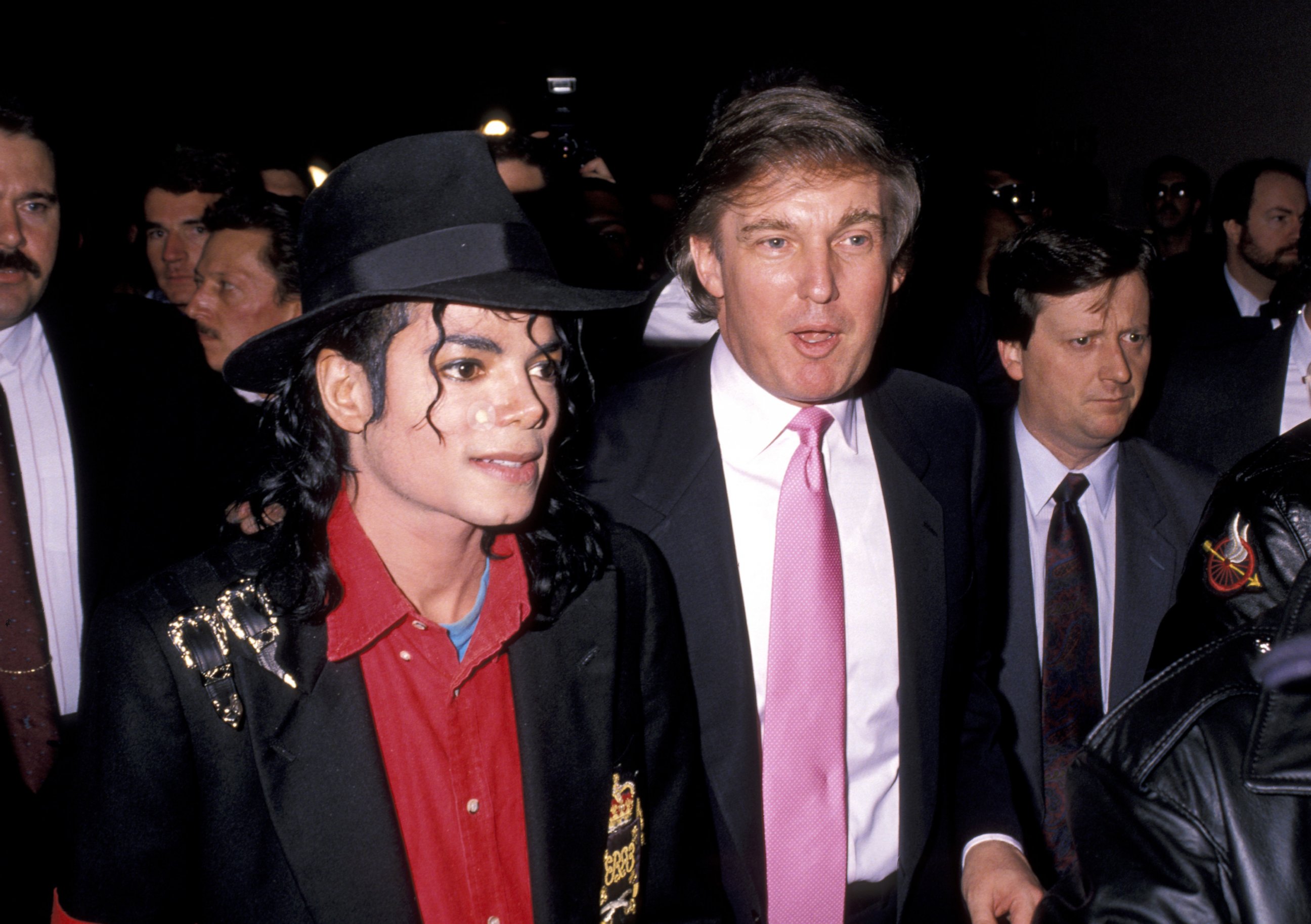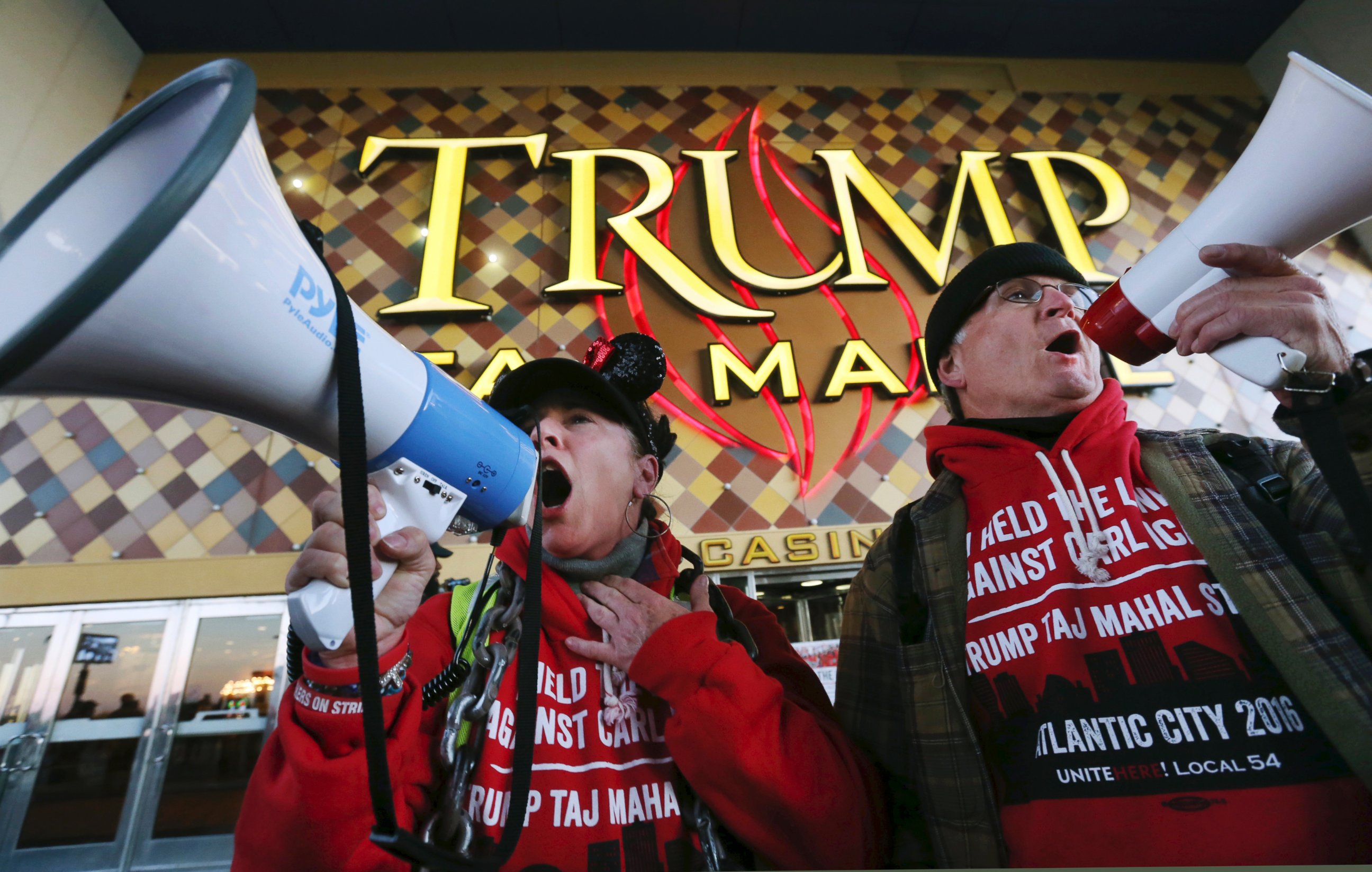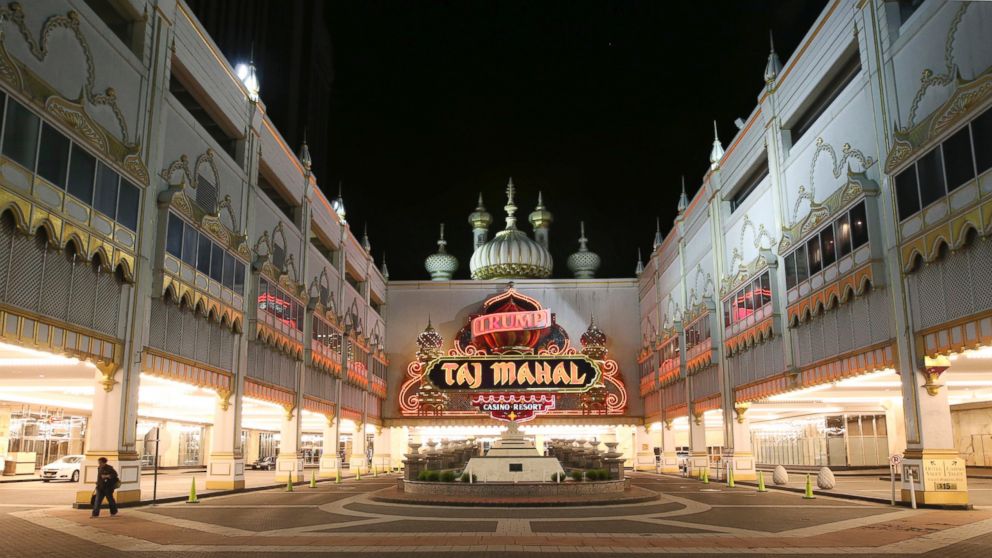How Trump's Taj Mahal Casino Went From '8th Wonder of the World' to Closure After Years of Losses
A construction company owner who worked on the casino said Trump didn't pay him.
— -- The Trump Taj Mahal Casino and Resort in Atlantic City, New Jersey, was advertised as the eighth wonder of the world when it opened in 1990.
It was Donald Trump’s biggest and boldest real estate project to date.
“The scale, Charlie, is what brings the people. The opulence, the size, the everything is really what’s going to make the Taj Mahal the most successful hotel anywhere in the world,” Trump told ABC News’ Charles Gibson in 1990.
But on Oct. 10 at 5:59 a.m., the lights went off at the Trump Taj Mahal after 26 years, leaving thousands of middle class workers without jobs.

Trump set his sights on Atlantic City after he had successfully completed the Trump Tower in Manhattan in the 1980s.
In Atlantic City, Trump bought three casinos: Trump Plaza, Trump Castle and the Trump Taj Mahal. He got the Trump Taj Mahal after its original owner, Resorts International, couldn’t complete construction on it.
Trump threw a grand opening party that seemed as lavish as the casino itself. Michael Jackson was the guest of honor.
The whole spectacle was captured by Robin Leach, celebrity journalist to the stars. On his show, Leach said the casino made $2 million on its opening day.
Though that multi-million dollar haul may sound impressive, gaming industry financial analyst Marvin Roffman says he knew at the time it wasn’t sustainable.
Roffman said Trump called him the day after he bought the Trump Taj Mahal to get his advice.

“I said, ‘Well, why would you want to have three casinos? One is going to cannibalize the other,’” Roffman told ABC News’ “Nightline.” “And here was his response: ‘Marvin, you have no vision. This is going to be a monster property.’ And those were the exact words.”
Just weeks before the casino opened, Roffman told The Wall Street Journal, “When this property opens he will have had so much free publicity he will break every record in the books in April, June and July … But once the cold winds blow from October to February it won't make it. The market just isn't there."
According to Roffman, Trump was so upset with Roffman’s grim prediction for the Trump Taj Mahal that he called Roffman’s boss. Either make Roffman apologize publicly or fire him, Roffman says Trump told his boss.
Trump told ABC News the day before the Trump Taj Mahal opened that he was out to get Roffman, saying, “When somebody does something wrong and says something wrong, and somebody's in a conflict position, I decided in this particular case to go after him.”
Roffman said his boss drafted a letter retracting what he’d said to The Journal and told him to sign the letter or else.
“So I signed the letter. And it was faxed to Donald Trump. And the very next day he called and said he wanted changes made to that letter … the letter that I didn’t write,” Roffman said. “He wanted changes made to that letter which would absolutely be against my -- of what I thought was going to happen. And I thought, ‘This whole thing smells.’ And it’s very, very serious.”
Roffman said he then wrote a new letter to Trump, retracting his boss’ retraction letter. "The letter went out, and they fired me on the spot," Roffman said.
Roffman said what really worried him about the Trump Taj Mahal was how Trump had financed it -- with an extremely high interest loan.
“The Taj would have to make close to $1.3 million a day to break even. No casino in the world ever had a win anywhere near approaching that kind of number,” said Roffman.
Roffman turned out to be exactly right about the Trump Taj Mahal. A little over a year after it opened, the Trump Taj Mahal filed for bankruptcy and Trump's two other Atlantic City casinos followed suit the next year.
Later, Roffman went on to sue his employer for wrongful termination. A judge awarded him $750,000.
Roffman also sued Trump for defamation of character. Trump settled the suit out of court with no admission of wrongdoing.
Issues also arose between Trump and the hotel's contractors. He bought the casino after Resorts International couldn't finish the construction. Trump completed construction on the project and inherited all the union workers who had started building it.
“Had I known that Trump was going to take over the job, I would have never done the job,” Martin Rosenberg told “Nightline.”
Rosenberg said the Trump Taj Mahal job nearly cost him his entire company, which was contracted to provide glass, mirrors and doors. But he said Trump didn’t uphold his end of the deal.
“He promised me, personally, if we did a good job, we would get paid. At the time I said, ‘We always do a good job.’ And I didn’t get paid,” Rosenberg said.
Rosenberg said Trump owed him over $1 million. But he wasn’t alone. He said Trump didn’t honor the financial obligations to over 100 contractors who helped complete the Trump Taj Mahal.
"The man didn't pay us because he didn't have the money, bottom line," said Rosenberg.
Rosenberg said he and six other unpaid workers banded together on behalf of the entire group and forced a meeting with Trump.
"I had a telephone call from Mr. Trump's personal attorney and he said to me, ‘What is this about a meeting?’ I said, ‘We want to get paid.’ He says, ‘Well how can I stop this meeting?’ I said, "It's relatively simple. Give me a check for $1.2 million.’ He laughed. I said, ‘Okay. But I want you to understand something. Once we meet I have an obligation and I will stick to it. You can't pay me off and not pay everybody else off. We're coming in as a group now,’” said Rosenberg.

After several rounds of negotiations, Rosenberg said he and the other contractors settled with Trump for less than what they were owed with devastating results.
“Some went bankrupt. Some lost their businesses. We survived because we were very busy in Atlantic City,” Rosenberg said.
Last summer, Rosenberg shared his experiences of working for Trump at a Hillary Clinton campaign event in Atlantic City.
Trump sold his interest in the Trump Taj Mahal in 2009. His friend and supporter Carl Icahn eventually took it on in 2014.
In an emailed statement to “Nightline” about the Trump Taj Mahal closure, a Trump campaign spokesperson said, “Mr. Trump has not been involved for many years and has been given great credit for his timing.”
Charles Baker, who started working at Trump Taj Mahal 26 years ago, said the union clashed with Icahn over things like health benefits and paid lunch breaks.
Negotiations between the union and Icahn failed, so some Trump Taj Mahal employees went on strike this summer, prompting Icahn to close the casino for good.

“We can’t give back anymore. I’ve got nothing else to give. You’ve taken everything from me that I’ve ever worked for,” Baker said while on strike.
On his website this week, Icahn posted a statement about the casino’s closure: “Today is a sad day for Atlantic City. Despite our best efforts, which included losing almost $350 million over just a few short years, we were unable to save the Taj Mahal. I am extremely grateful to all of the almost 3,000 employees for their hard work, especially those that stayed loyal to us during this trying period. After our last offer, which included medical, was rejected, it was simply impossible to find a workable path forward that would not have required funding additional investments and losses in excess of $100 million over the next year. Like many of the employees at the Taj Mahal, I wish things had turned out differently.”
For Baker, there’s no question about how he’ll vote in November.
“I will not vote for Donald Trump. He is not my choice,” Baker said. “I don’t believe in anything he says. He made promises when he came to the city. Then he took his money, and he left. So I don’t see, you know, him doing anything great for America.”